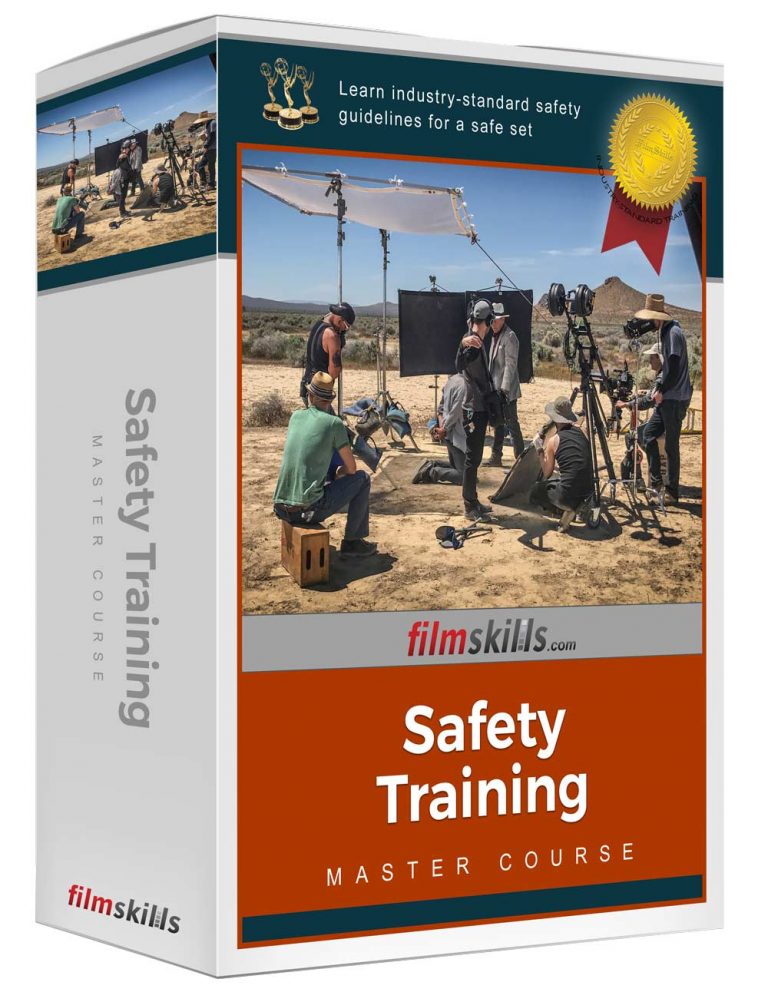A day in the life of a movie director can vary greatly depending on the stage of production and the specific needs of the project. However, regardless of the phase your production is in, the director has many job responsibilities.
The Director's Responsibilities During Pre-Production
During pre-production, the movie director will spend much of their time preparing for the shoot. This might involve meetings with the producers and other members of the team to discuss the overall vision for the film, scouting locations, casting actors, and working with the cinematographer to plan the look and feel of the film. The director will also spend time rehearsing with the actors and going over the script to make any necessary revisions.
- Developing the overall vision for the film: The director is responsible for shaping the overall aesthetic and tone of the film, and must work closely with the producers and other members of the team to develop a clear vision for the project. This might involve making decisions about the look and feel of the film, the themes that it will explore, and the tone that it will take.
- Collaborating with the writers: If the film is based on a script, the director will work closely with the writers to make any necessary revisions or changes to the script. This might involve suggesting changes to the plot, character development, or dialogue, and working with the writers to ensure that the script is ready for production. Learn tips and techniques for breaking down the script as a director.
- Casting actors: The director is responsible for casting the actors who will bring the characters in the script to life. This might involve holding auditions, reviewing headshots and resumes, and working with the casting director to find the right actors for the roles.
- Scouting locations: The director will work with the location scout to identify and secure the locations where the film will be shot. This might involve scouting locations in person, reviewing photos and videos of potential locations, and negotiating contracts with property owners. Learn how to get a location owner to say yes.
- Working with the cinematographer: The director will work closely with the cinematographer to plan the look and feel of the film. This might involve making decisions about the camera angles, lighting, and composition of each shot, and working with the cinematographer to develop a visual style for the film.
- Rehearsing with the actors: The director will spend time rehearsing with the actors to help them develop their characters and prepare for the shoot. This might involve reading through the script, blocking out the action, and giving feedback and direction to the actors.
- Reviewing the budget and schedule: The director will work with the producers and other members of the team to review the budget and schedule for the film. This might involve making decisions about the shooting schedule, the number of shooting days, and the allocation of resources.
- Assemble the crew: The director will work with the producers and other members of the team to assemble the crew for the film. This might involve hiring department heads, such as the production designer, the costume designer, and the editor, and assembling the team of technicians and crew members who will work on the film.
- Plan the shooting schedule: Once the locations and actors have been secured and the crew has been assembled, the director will work with the producers and other members of the team to plan the shooting schedule. This might involve deciding on the order in which scenes will be shot, determining the number of shooting days required, and determining the logistics of how and where the film will be shot.
Overall, the director plays a vital role in the pre-production process, and is responsible for shaping the overall vision and direction of the film. By working closely with the producers, writers, actors, and cinematographer, the director can help to ensure that the film is well-prepared and ready for a successful shoot.
The Director's Responsibilities During Production
During production, the director’s primary responsibility is to work with the cinematographer to set up and light each shot, rehearse and block the action with the actors, and giving direction to the cast and crew. The director will also work closely with the sound and camera departments to ensure that the technical aspects of the shoot are being handled correctly.
- Rehearse with the actors: Rehearse with the actors to help them prepare for their performances by reading through the scene, blocking out the action, and giving feedback and direction to the actors.
- Help the actors understand their characters: The director works with the actors to remind them of their character’s motivations, desires, and inner lives. While the process of developing each character’s backstory, goals in the scene, and subtext have been developed long before the shooting day, the director helps each actor hone the performance to achieve these goals.
- Create a positive and supportive atmosphere on set: This helps the actors feel comfortable and confident, which can lead to better performances. The director can help create this atmosphere by being approachable, open to feedback, and respectful of the actors’ needs and concerns.
- Encourage the actors to take risks: Encouraging the actors to take risks and try new things can help them to break out of their comfort zone and deliver more dynamic and nuanced performances. The director can encourage this by providing a safe and supportive environment in which the actors feel free to experiment and explore. Remember that actors are artists, so let them do what they do best.
- Give constructive feedback: Providing constructive feedback to the actors can help them to understand what is working and what can be improved in their performances. The director can give this feedback in a positive and supportive way, focusing on specific actions or choices that the actors can make to improve their performances.
- Plan each shot: The director and cinematographer will work together to plan each shot, including the camera angles, lighting, and composition. The director might make suggestions about how to frame the shot, while the cinematographer will be responsible for executing the technical aspects of the shot.
- Make adjustments to the lighting and camera setup as needed: As the shoot progresses, the director and cinematographer might need to make adjustments to the lighting or camera setup in order to achieve the desired look and feel for the film. The director might suggest changes to the lighting or camera angles, while the cinematographer will be responsible for making these changes.
- Review dailies: The director and cinematographer will review the footage that has been shot each day, known as “dailies,” to assess the progress of the shoot and make any necessary adjustments. This might involve identifying any problems that need to be addressed, making creative decisions about the look and feel of the film, and ensuring that the vision for the film is being realized.
The Director's Responsibilities During Post-Production
After the filming is complete, the director will shift their focus to post-production. This involves working with the editor to assemble the raw footage into a rough cut of the film, and making any necessary changes or revisions. The director will also work with the composer to create the score, and with the sound and visual effects teams to add any necessary elements.
- Review the footage: The director will review the raw footage from the shoot in order to get a sense of what has been captured and to identify any problems that need to be addressed. This might involve looking for continuity errors, identifying scenes that need to be reshot, or making decisions about how to structure the film.
- Work with the editor: The director will work closely with the editor to shape the raw footage into a cohesive and compelling film. This might involve making decisions about which shots to include, how to structure the film, and how to transition between different scenes. The director might also provide feedback and direction to the editor as the film is being cut.
- Review the work of the sound and music departments: The director will work with the sound and music departments to add the final layer of audio to the film. This might involve making decisions about the sound effects, dialogue, and music that will be used, and working with the sound and music departments to ensure that everything fits together seamlessly.
- Review the work of the visual effects department: If the film requires any special effects, the director will work with the visual effects department to ensure that they are incorporated into the film in a way that is seamless and believable. This might involve providing feedback and direction to the visual effects team, and making decisions about which effects to include.
- Reviewing the final cut: Once the final cut of the film has been completed, the director will review it and make any final adjustments or changes as needed. This might involve fine-tuning the pacing, adding or removing shots, or making changes to the sound or music.
- Collaborate on the overall sound design of the film: The director will work with the composer and sound team to develop a cohesive sound design for the film. This might involve making decisions about the music that will be used, the sound effects that will be added, and the overall soundscape of the film.
- Choose the music: The director will work with the composer to choose the music that will be used in the film. This might involve reviewing demos and compositions from the composer, making decisions about the style and mood of the music, and ensuring that the music enhances the overall vision for the film.
- Add sound effects: The director will work with the sound team to add sound effects to the film. This might involve making decisions about what sound effects will be used, where they will be placed in the film, and how they will be blended with the other elements of the soundscape.
- Mix the sound: The director will work with the sound team to mix the sound for the film. This might involve making decisions about the levels of the various elements of the soundscape, such as the dialogue, music, and sound effects, and ensuring that the overall balance of the sound is effective.
- Review and approve the final sound mix: Once the final sound mix has been completed, the director will review it and make any necessary adjustments or changes. This might involve making changes to the levels of the various elements of the soundscape, or adding or removing sound effects as needed.
The Director's Responsibilities During Marketing
In addition to their work on the film itself, movie directors may also be required to participate in promotional activities for the film. This might involve attending press junkets, participating in interviews, and making public appearances to promote the film.
- Collaborating with the marketing team: The director will work closely with the marketing team to develop a marketing and promotion strategy for the film. This might involve making decisions about the trailers, posters, and other promotional materials that will be used to promote the film, and working with the marketing team to execute the campaign.
- Participating in press events and interviews: The director will likely participate in press events and interviews to promote the film. This might involve attending press junkets, giving interviews to print and online media outlets, and appearing on television and radio programs.
- Attending film festivals and other promotional events: The director might attend film festivals and other promotional events to promote the film and interact with audiences. This might involve participating in Q&A sessions, doing interviews, and attending red carpets and other special events.
- Collaborating with the distribution team: The director will work with the distribution team to ensure that the film is released in a way that meets the overall vision for the film. This might involve making decisions about the release date, the distribution strategy, and any additional marketing or promotion that will be needed.
Important Skills for the Director
Collaboration: As a movie director, you will be working with a wide range of professionals, including producers, writers, actors, cinematographers, and crew members. You will need to be able to effectively communicate your vision for the film and collaborate with these individuals to bring it to life.
Problem-solving: Making a movie involves a lot of problem-solving, as there are often unexpected challenges that arise during production. As the director, it will be your responsibility to find creative solutions to these problems and keep the production on track.
Decision-making: As the director, you will be responsible for making many important decisions that will have a major impact on the final product. These might include casting decisions, location choices, and creative decisions about the look and feel of the film. You will need to be able to make these decisions confidently and effectively.
Creativity: As a movie director, you will need to have a strong sense of creativity and artistic vision. You will be responsible for shaping the overall look and feel of the film, and for bringing your unique perspective to the project.























